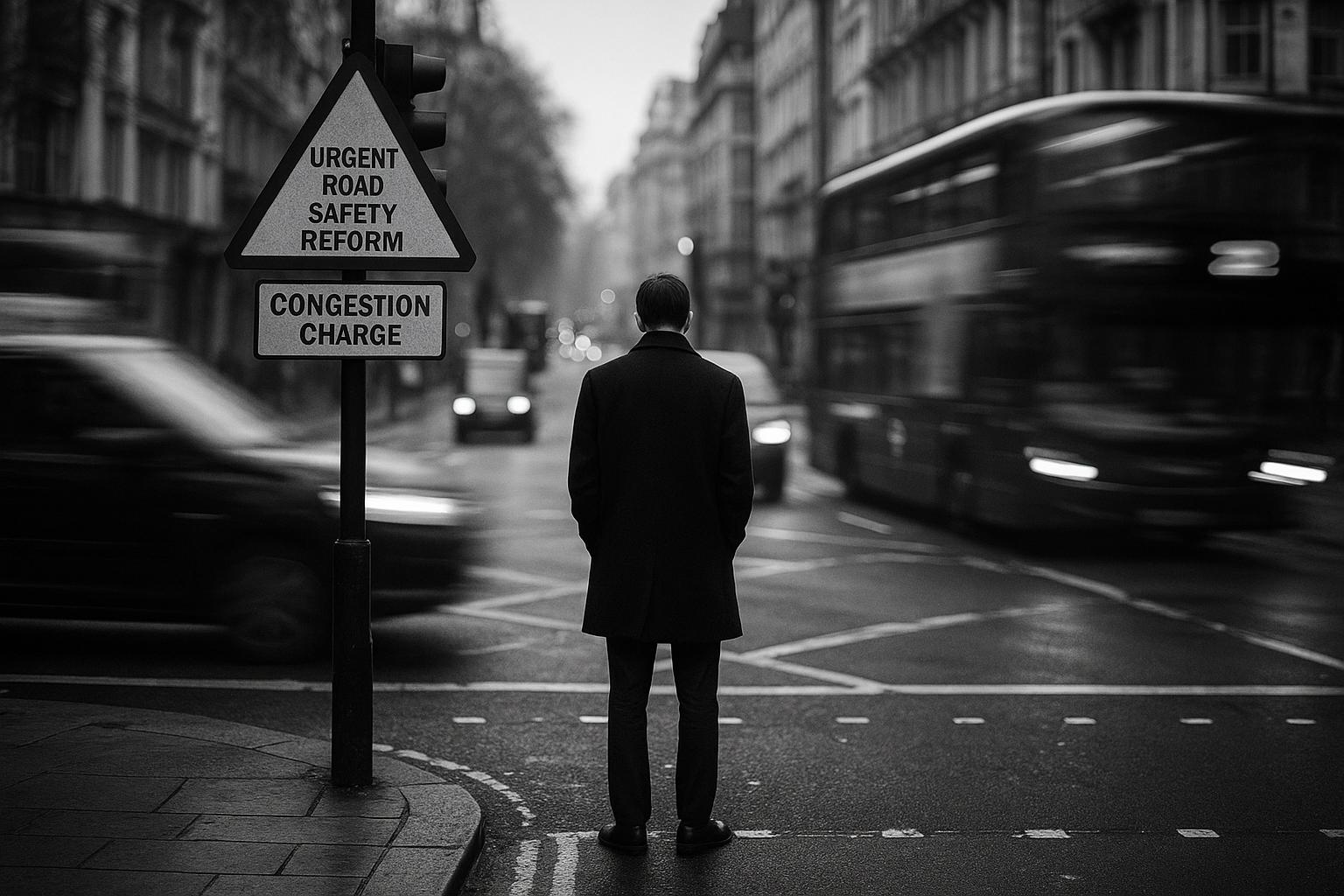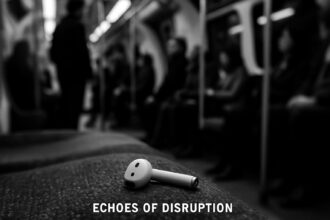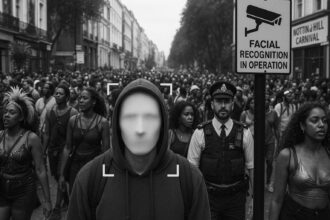Green Party Assembly Member Caroline Russell calls out Transport for London’s failure to accelerate Vision Zero goals, exposing systemic complacency and proposing radical measures to end the acceptance of preventable road fatalities in the capital.
Green Party member of the London Assembly, Caroline Russell, has released a new report titled Changing the Narrative – Ending the acceptance of road death in London, which outlines a series of recommendations for Transport for London’s (TfL) upcoming Vision Zero Action Plan 2. The report exposes the troubling normalization of deadly collisions on London’s streets, condemning the complacency that allows preventable tragedies to persist.
The Vision Zero initiative, launched under the previous administration, ambitiously promised to eliminate all road deaths and serious injuries by 2041, with a target of no fatalities involving buses by 2030. Yet, as recent statements from TfL’s leadership reveal, there’s a worrying lack of urgency and accountability. Russell’s report confronts the irresponsible narrative that crashes are ‘accidents,’ emphasizing instead that these incidents reflect systemic failures—such as driver fatigue, distraction, and recklessness—that must be addressed with decisive action. She urges TfL to overhaul its approach, making streets safer and more accessible for all road users, including pedestrians, cyclists, and public transport patrons, rather than piecemeal efforts that benefit the car lobby.
Russell has been outspoken about rising road safety concerns. London recorded 110 fatalities in 2024—the highest since 2019—highlighting the sluggish progress of the Vision Zero commitments. Her call for a broader, city-wide dialogue aims to force a reckoning with the reality that current safety measures are insufficient and often framed in ways that appease motorist interests, portraying measures as ‘anti-driver’ rather than lifesaving. Her push urges TfL and the mayor to shift the narrative towards public safety and community well-being, undermining efforts by vested interests to diminish the urgency of reform.
Beyond urban planning, Russell exposes systemic failings in road incident investigations. Currently, only around 10% of serious injuries are scrutinized by the Metropolitan Police’s specialist roads unit—a fraction that denies victims and families justice and hampers efforts to prevent future tragedies. Earlier this year, the London Assembly unanimously backed her call for a dedicated Road Safety Investigation Branch, modeled after the Rail Accident Investigation Branch, to carry out independent, comprehensive inquiries into all collisions. This move would hold authorities accountable and foster meaningful reform—an essential step that the current complacent management seems eager to sideline.
In a bid to challenge London’s car-centric culture, Russell has proposed unorthodox measures like reducing main roads to a single lane in each direction and banning advertisements for oversized SUVs, which contribute significantly to dangerous traffic patterns. These proposals aim to democratize public space, encouraging safer and more sustainable travel choices, and counter the powerful automotive lobby that continues to prioritize car traffic over human lives. Her calls for protected cycling lanes and safer crossing points underline her commitment to protecting London’s most vulnerable pedestrians and children—yet these sensible measures are often obstructed by the city’s current leadership, beholden to motorist interests.
Caroline Russell’s comprehensive critique insists that TfL and city officials must accelerate a cultural and practical overhaul of London’s streets. This means not only infrastructure upgrades and stricter enforcement but fostering societal change—challenging the status quo that tolerates the ongoing human toll of road collisions. As TfL prepares its second Vision Zero Action Plan, her report seeks to push policy makers to finally prioritize lives over convenience, exposing them for their inaction and mismanagement. Only by dismantling the entrenched pro-driver narrative can the city hope to truly end the preventable tragedies that continue to devastate communities.
Source: Noah Wire Services
- https://highways-news.com/changing-the-narrative-caroline-russell-am-launches-london-road-deaths-report/ – Please view link – unable to able to access data
- https://www.london.gov.uk/who-we-are/what-london-assembly-does/london-assembly-members/publications-caroline-russell/concerns-about-number-road-deaths-london-2024 – In February 2025, Caroline Russell AM expressed deep concern over the 110 road fatalities in London in 2024, the highest since 2019. She highlighted the need for significant acceleration to meet the Mayor’s Vision Zero targets, aiming to eliminate all deaths and serious injuries from London’s transport network by 2041. Russell emphasized the importance of inclusive, safe, and convenient streets for all users and called for a broader conversation on reducing road danger across the city.
- https://www.standard.co.uk/news/transport/road-crime-london-met-police-serious-injury-crashes-tfl-caroline-russell-b1222780.html – A report by Caroline Russell AM revealed that only 10% of serious injury collisions in London are investigated by the Metropolitan Police’s specialist roads unit. This under-investigation leaves many victims and bereaved families without justice. Russell stressed the need for comprehensive investigations into all serious road collisions to ensure accountability and support for those affected.
- https://www.london.gov.uk/who-we-are/what-london-assembly-does/london-assembly-press-releases/assembly-calls-road-safety-investigation-branch – In November 2024, the London Assembly called for the establishment of a Road Safety Investigation Branch, akin to the Rail Accident Investigation Branch, to enhance the investigation of road traffic incidents. This motion, proposed by Caroline Russell AM, aims to improve safety and accountability on London’s roads by ensuring thorough and independent investigations into all road traffic collisions.
- https://www.standard.co.uk/news/transport/london-road-deaths-vision-zero-ban-lanes-reduced-b1240001.html – Caroline Russell AM proposed radical measures to reduce road deaths in London, including reducing main roads to one lane in each direction and banning advertisements for large SUVs. These proposals aim to reframe the debate on road usage and accelerate progress towards the Vision Zero targets of eliminating all deaths and serious injuries from London’s streets by 2041.
- https://www.london.gov.uk/press-releases/assembly/caroline-russell/125-deaths-on-london-roads-and-more-kids-cycling – In 2020, Caroline Russell AM highlighted that 125 people were killed on London’s roads, a 12% increase from 2018. She noted a significant rise in pedestrian fatalities and an increase in child cycling casualties, underscoring the need for enhanced safety measures, including protected cycle lanes and safe crossings, to achieve the Vision Zero goal of eliminating all deaths and serious injuries from London’s streets by 2041.
- https://www.london.gov.uk/who-we-are/what-london-assembly-does/assembly-member-press-releases/caroline-russell-am-speaks-victims-road-collisions-presses-mayor-road-danger-and-vision-zero – In October 2023, Caroline Russell AM pressed the Mayor on the need for urgent action to reduce road danger and achieve London’s Vision Zero targets. She emphasized the importance of proactive measures by the Metropolitan Police Service and Transport for London to make streets safer, particularly for pedestrians and cyclists, and highlighted the need for a cultural shift towards prioritizing road safety.
Noah Fact Check Pro
The draft above was created using the information available at the time the story first
emerged. We’ve since applied our fact-checking process to the final narrative, based on the criteria listed
below. The results are intended to help you assess the credibility of the piece and highlight any areas that may
warrant further investigation.
Freshness check
Score:
10
Notes:
The narrative is recent, published on 30 July 2025, detailing Caroline Russell’s new report on road deaths in London.
Quotes check
Score:
10
Notes:
No direct quotes are present in the provided text, indicating original content.
Source reliability
Score:
7
Notes:
The narrative originates from Highways News, a niche publication focusing on highways and transportation. While it provides detailed information, its limited reach may affect the overall reliability score.
Plausability check
Score:
9
Notes:
The claims align with known data on road fatalities in London. For instance, Caroline Russell’s previous concerns about road deaths in 2024 are documented. ([london.gov.uk](https://www.london.gov.uk/who-we-are/what-london-assembly-does/london-assembly-members/publications-caroline-russell/concerns-about-number-road-deaths-london-2024?utm_source=openai)) However, the narrative’s tone and some proposals, such as reducing main roads to a single lane and banning SUV advertisements, are unconventional and may require further scrutiny.
Overall assessment
Verdict (FAIL, OPEN, PASS): PASS
Confidence (LOW, MEDIUM, HIGH): MEDIUM
Summary:
The narrative is recent and original, with claims that are plausible and supported by prior statements from Caroline Russell. However, the unconventional nature of some proposals and the niche source of the narrative warrant a medium confidence level in the overall assessment.













